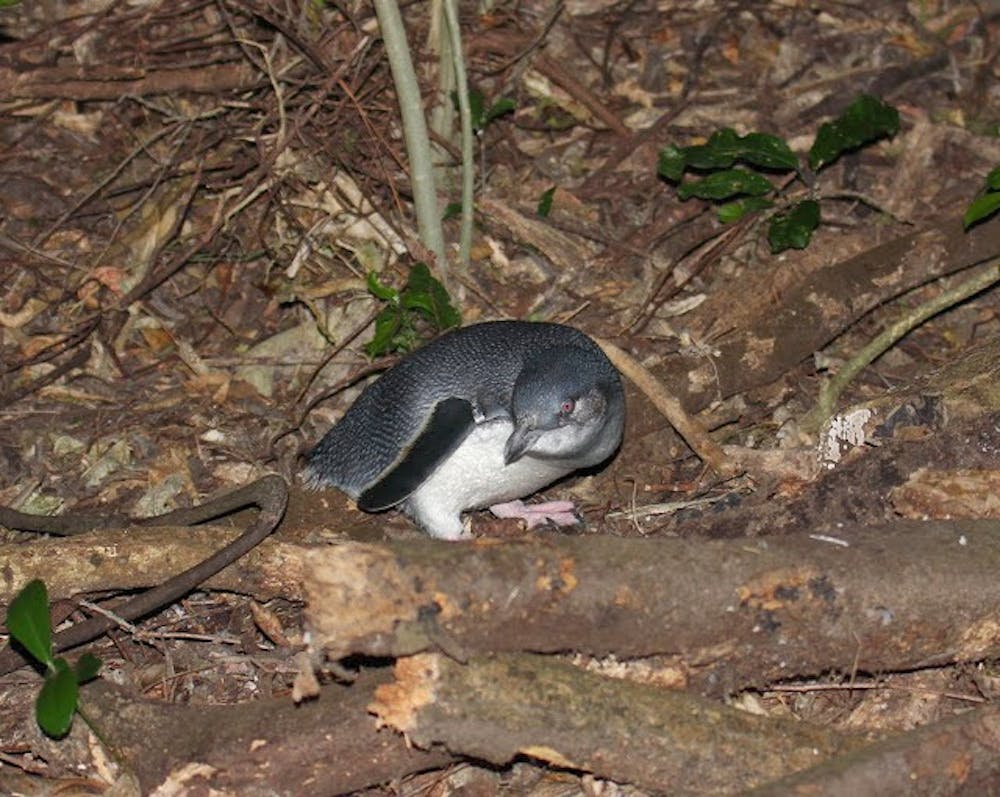[SlideDeck2 id=19098]
McKena Miyashiro |
Tucked away on the second floor of Swindells Hall, biology professor Katie O’Reilly can be found, along with her stuffed animal penguins from around the world, bird-watching from the comfort of her office.
O’Reilly, who researches different birds around the world, received a Fulbright Scholar grant in 2013 to study little blue penguins in New Zealand and teach conservation ecology at the University of Auckland for a semester.
O'Reilly was one of six professors nationwide to receive a Fulbright grant to New Zealand and the first woman at University of Portland to receive this grant. Although the official Fulbright program started in February, O'Reilly arrived early in New Zealand, as the penguins’ mating season was completed by February.
"That's one of the few places that you can get to easily and study penguins. It's one of their speciality birds there and they have quite a few species of them," O'Reilly said. “I picked the easiest species to study (the little blue penguin). That’s the one that’s not endangered and there’s good number of them.”
According to O'Reilly, New Zealand is the seabird capital of the world. O'Reilly traveled to different parts of the country to track penguins and their hormones to see if certain hormones influence their behavior. During her stay, O'Reilly experienced amazing dairy products, met nice people and blissfully remembers the experience of watching America's Cup catamarans practicing by her house.
Though O’Reilly is back in the States, her colleague, Professor Todd Dennis in New Zealand, sees this project as a collaboration for life and hopes to add different species of penguins to their study. In the next five or 10 years, O’Reilly hopes to continue their collaboration and start new research on seabirds with scholars at different universities. O’Reilly is also trying to develop a tool on campus to measure stress hormones in birds.
This August, O’Reilly will be traveling to Tanzania and Kenya for further research.
O’Reilly’s expertise has not only taken her to different states throughout the country as a professor, but also around the world as a researcher. In 2012, O’Reilly traveled to Antarctica, Tierra del Fuego, the Falkland Islands and South Georgia Island on sabbatical. This trip marked O’Reilly’s first experience studying penguins.
“When you go to a lot of these natural areas, there’s no one else really there. You have the equivalent of national parks to yourself and it’s just incredible. You really felt at one with the natural system,” O’Reilly said.
O’Reilly’s interest in coastal birds developed from growing up kayaking in the wetland areas of southern California.
“I wanted to be a wildlife biologist and that was my plan from the get-go,” she said.
Because her aunt was a wildlife biologist, O’Reilly was inspired to get a doctorate in wildlife biology as well.
After seven summers spent in Alaska researching western sandpipers, O’Reilly planned on specifying as an ornithologist in Alaska. However, a colleague of hers suggested that she become a visiting assistant professor in Maine.
“I didn’t think of being a professor until I was practically a professor,” O’Reilly said. “I think students don’t often think of being a professor as a potential career.”
O’Reilly’s enthusiasm for biology is visibly shared with her students.
“She’s very bubbly and very excited about what she does and she loves what she does. She makes you want to love it too,” said senior Kay Bodmer, who took ecology with O’Reilly. “I think she expects a lot out of you, which is really encouraging because she wants you to do your own research and work. She’s a really good resource.”
Outside of work, O’Reilly enjoys bird watching, traveling, photography, gardening and hiking.
“If you’re in a field that you love, then your hobbies and work are the same thing. I’m always doing something that I love,” O’Reilly said.









